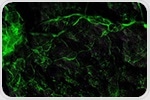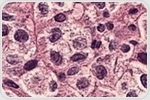
|
|
|
| |

|
|
| |
The latest fluorescence news from NewsMedical |
|
|
|
 | | |
 Fast, Accurate DNA, RNA & Protein Quantification Fast, Accurate DNA, RNA & Protein Quantification
Discover the Thermo Scientific™ NanoDrop Ultra — a next-generation microvolume UV-Vis spectrophotometer and fluorometer delivering rapid, reliable DNA, RNA and protein quantification. Featuring an integrated qPCR calculator, optional SciVault 2 compliance software, and advanced cloud connectivity for streamlined laboratory workflows.
| |
|
|
|
|
 | | |  A new theoretical framework unifies excitation, emission, and collection in D-shaped fiber optic sensors, improving fluorescence-based sensing capabilities. A new theoretical framework unifies excitation, emission, and collection in D-shaped fiber optic sensors, improving fluorescence-based sensing capabilities. | | | | |  Molecularly imprinted membranes for a cost-effective solution for detecting CA 19-9, rapid, instrument-free pancreatic cancer biomarker analysis. Molecularly imprinted membranes for a cost-effective solution for detecting CA 19-9, rapid, instrument-free pancreatic cancer biomarker analysis. | | | | |  MIT chemists have designed a new type of fluorescent molecule that they hope could be used for applications such as generating clearer images of tumors. MIT chemists have designed a new type of fluorescent molecule that they hope could be used for applications such as generating clearer images of tumors. | | | | | __639035364732425797_multisizecolor_150_custom.jpg) Cancer research, drug safety testing and ageing biology may all gain a major boost from a new fluorescent sensor developed at Utrecht University. Cancer research, drug safety testing and ageing biology may all gain a major boost from a new fluorescent sensor developed at Utrecht University. | | | | |  An innovative three-color method for capturing images of mRNA inside live mammalian cells has been developed by UMass Amherst chemists. An innovative three-color method for capturing images of mRNA inside live mammalian cells has been developed by UMass Amherst chemists. | | | | |  Lipids are fatty molecules that play critical roles in cell function, including membrane structure, energy storage and nutrient absorption. Lipids are fatty molecules that play critical roles in cell function, including membrane structure, energy storage and nutrient absorption. | |
|
|
|
 | | | How would you rate today's newsletter?
| |
|
|
|
 | | |
 |
Stay updated with the latest in health and medical news! Follow News‑Medical.net on Google News for real‑time updates. Click here to follow us now. |
| |
|
|
|
|
|